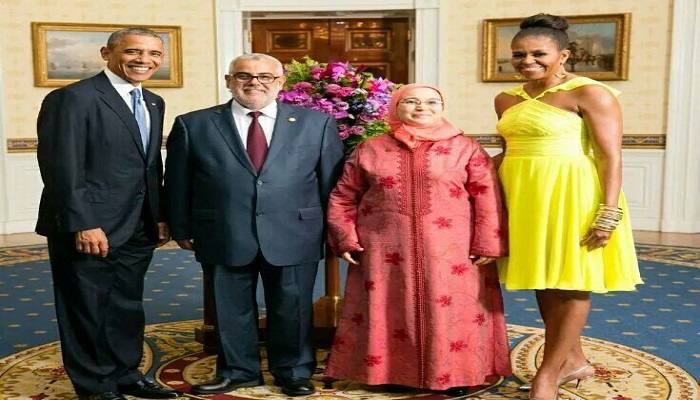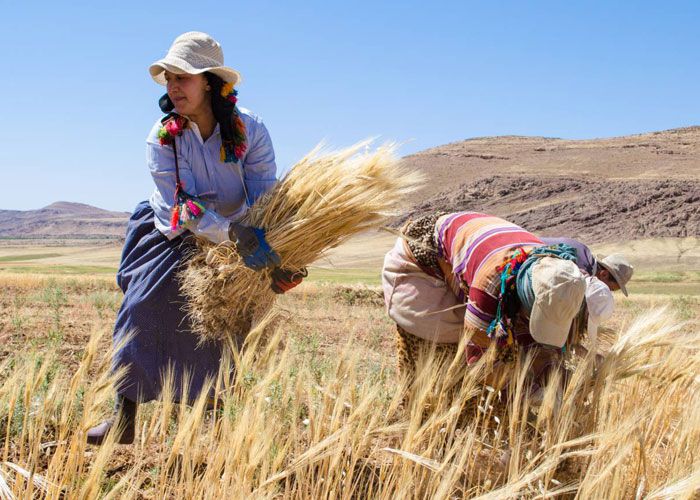[symple_box]
 Dr. Moin Qazi is a well-known banker, author and journalist. He holds doctorates in Economics and English. He received an Honorary D Litt at the World Congress of Poets at Istanbul in 1991. He is author of several books on Islam including bestselling biographies of Prophet Muhammad and Caliph Umar. He writes regularly for several international publications and was a Visiting Fellow at the University of Manchester. He is also a recipient of UNESCO World Politics Essay Gold Medal and Rotary International’s Vocational Excellence Award. He is based in Nagpur and can be reached at moinqazi123@gmail.com [/symple_box]
Dr. Moin Qazi is a well-known banker, author and journalist. He holds doctorates in Economics and English. He received an Honorary D Litt at the World Congress of Poets at Istanbul in 1991. He is author of several books on Islam including bestselling biographies of Prophet Muhammad and Caliph Umar. He writes regularly for several international publications and was a Visiting Fellow at the University of Manchester. He is also a recipient of UNESCO World Politics Essay Gold Medal and Rotary International’s Vocational Excellence Award. He is based in Nagpur and can be reached at moinqazi123@gmail.com [/symple_box]
| “O ye who believe! stand out firmly for justice, as witnesses to Allah, even as against yourselves, or your parents, or your kin, and whether it be (against) rich or poor: for Allah can best protect both. Follow not the lusts (of your hearts), lest ye swerve, and if ye distort (justice) or decline to do justice, verily Allah is well-acquainted with all that ye do.”{ [Holy Quran 4:135] |
Justice is the cardinal value of any civilized society. More than any other element, it is justice, which has been the cornerstone, and bedrock of all great civilizations. Without justice, the entire bulwark of society would crumble. There would be utter chaos and confusion and people will have to live in constant fear and mental distress if justice were to fade away from society.
Justice can take roots in the hallowed soil of civilization only if it is nourished by the blood of people who are willing to sacrifice themselves for the noble principles of honesty, rectitude and piety. Justice is a value, which takes birth in our daily actions. It is not just a social value but also an essential virtue for every human interaction. It is not left just to kings, rulers or to judges and pleaders.
The Quran considers justice to be a supreme virtue. It is a basic objective of Islam to the degree that it stands next in order of priority to belief in God’s exclusive right to worship (tawheed) and the truth of Muhammad’s Prophethood. God declares in the Quran:
- “God commands justice and fair dealing…” (Q 16:90)
And in another passage:
- you who believe, be upright for God, and (be) bearers of witness with justice!… (Q 5:8)
Therefore, one may conclude that justice is an obligation of Islam and injustice is forbidden. The centrality of justice to the Qur’anic value system is displayed by the following verse:
- “We sent Our Messengers with clear signs and sent down with them the Book and the Measure in order to establish justice among the people…” (Q 57:25)
The Qur’anic standards of justice transcend considerations of race, religion, color, and creed, as Muslims are commanded to be just to their friends and foes alike, and to be just at all levels, as the Quran puts it:
- “you who believe! Stand out firmly for justice, as witnesses to Allah, even if it be against yourselves, your parents, and your relatives, or whether it is against the rich or the poor…” (Q 4:135)
According to another Qur’anic passage:
- “Let not the hatred of a people swerve you away from justice. Be just, for this is closest to righteousness… “(Q 5:8)
Umar occupies a glorious pace in the scrolls so history on account of his unflinching commitment to justice:
“Justice is an important obligation. Treat the people equally in your presence, in your company, and in your decisions, so that the weak despair not of justice and the high placed have no hope of your favour. When you are in doubt on a question and find nothing about it in the Qur’an or in the sunnah (traditions) of the Prophet, think over the question; ponder over the precedents and analogous cases and then decide by analogy”
The fact that the commands of the Qur’an to do justice and shun inequity have been repeated more than 55 times in the Quran, gives an idea of the overriding importance of justice and equity. The Quran emphatically prescribes: “O ye who believe! Stand out firmly for God, as witnesses to fair dealing, and let not the hatred of others to you make you swerve to wrong and depart from justice. Be just: that is next to piety” (5.8). Justice is also closely associated with moral rectitude and fairness, necessary ingredients to build an equitable system that leaves no room for any section of the community to feel burdened or discriminated against. In fact, the Quran uses strong language to denounce those regimes that divide people by applying differential treatment. It says, “Truly Pharaoh elated himself in the land and broke up its people into sections, depressing a small group among them: their sons he slew, but he kept alive their females: for he was indeed a maker of mischief” (28.4).
In the Qur’an, the nature of justice is referred to at several places by directing that Allah commanded, “Lo! Allah commandeth you that ye restore deposits to their owners, and, if ye judge between mankind, that ye judge justly” (Q4:58).
The Qur’anic injunctions on justice and fair dealing are reaffirmed in several prophetic narrations. One tradition quoted by Imam Ghazali in his book Advice to Kings is particularly revealing. It says: “A country can survive under kufr (disbelief or ingratitude to God) but it cannot survive under zulm (injustice and oppression)”.





